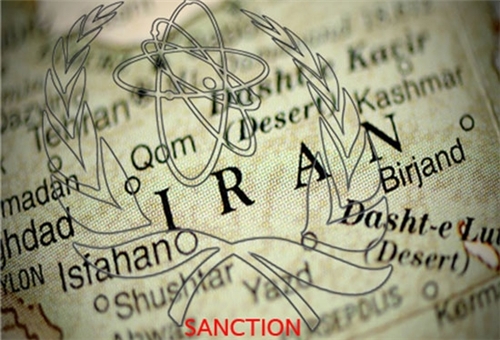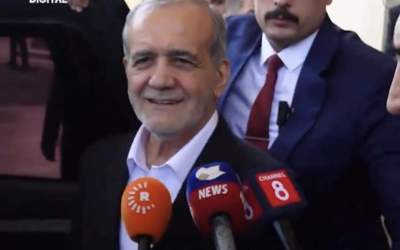 TEHRAN (FNA)- A senior political official at the Islamic Revolution Guards Corps (IRGC) said Tehran does not have trust in the US and Washington should annul its anti-Iran sanctions to display the truthfulness of its so-called rapprochement policy towards Tehran.
TEHRAN (FNA)- A senior political official at the Islamic Revolution Guards Corps (IRGC) said Tehran does not have trust in the US and Washington should annul its anti-Iran sanctions to display the truthfulness of its so-called rapprochement policy towards Tehran."If the US annuls the sanctions in practice, it will be shown that its behavior towards Iran is based on mutual respect, but many experts believe that the US administration doesn�t have the necessary good will on this path," Advisor to the Supreme Leader's Representative at the IRGC Yadollah Javani told FNA on Sunday.
Stressing that the Islamic Republic has announced readiness to show more transparency in its nuclear activities, he said, "Ending the sanctions is what the US should do after this transparency is established; thus today the US is facing a test of honesty."
Javani referred to the Saturday remarks of the Supreme Leader of the Islamic Revolution, Ayatollah Seyed Ali Khamenei, and said he has underlined in his comments that the enemy shouldn�t be fully trusted.
Yesterday, Ayatollah Khamenei voiced strong support for President Hassan Rouhani's diplomatic efforts, but meantime avoided throwing his weight behind each and every move that the president made in his recent New York visit, saying that he lacks trust in the US.
"We support the movement in government's diplomacy, including the New York visit, since we hold trust in the ... government and we are optimistic about it, but some of what happened in the New York visit were not proper because we believe the US administration is untrustworthy, conceited, illogical and unfaithful to its pledges," Ayatollah Khamenei said, addressing a cadets graduation ceremony here in Tehran.
He reiterated his confidence in the Iranian officials, yet, he advised them "to take their steps strongly, but carefully and after thorough study", underlining that the country's officials should always have national interests, Islamic Republic's exalted causes and national honor in mind.
Ayatollah Khamenei elaborated on the reason for Iran's lack of confidence in the US administration, and said, "Actually, the US administration moves in the direction of the Zionists' interests, and it blackmails the entire world and is blackmailed by the Zionist regime."
Addressing the UN General Assembly meeting last week, US President Barack Obama said the US wanted to resolve the nuclear issue peacefully, and added, "We are not seeking regime change, and we respect the right of the Iranian people to access peaceful nuclear energy."
"Instead, we insist that the Iranian government meet its responsibilities under the Nuclear Non-Proliferation Treaty and UN Security Council resolutions," he added.
Also, last Friday, media reports said that the Iranian and the US presidents talked over phone before President Rouhani�s departure from New York.
The two presidents talked over the phone as President Rouhani was in a car and heading towards the New York International Airport.
President Rouhani and President Obama discussed different issues during their phone conversation.
The Iranian and US presidents underlined the need for a political will for expediting resolution of West�s standoff with Iran over the latter�s nuclear program.
President Rouhani and President Obama stressed the necessity for mutual cooperation on different regional issues.
Iranian Foreign Minister Mohammad Javad Zarif and his US counterpart John Kerry have been commissioned to follow up talks between the two countries.
But after meeting Israeli Prime Minister Benjamin Netanyahu in New York, the US president made a U-turn, and said that "we take no options off the table, including military options" which revealed the US administration's lack of independency and decision-making power.
The United States and Iran broke diplomatic relations in April 1980, after Iranian students seized the United States' espionage center at its embassy in Tehran. The two countries have had tense relations ever since, but have shown willingness to attend talks to help resolve regional issues, including security in Iraq. Yet, the two countries have avoided talks on bilateral issues for the last thirty years.
Washington and its Western allies accuse Iran of trying to develop nuclear weapons under the cover of a civilian nuclear program, while they have never presented any corroborative evidence to substantiate their allegations. Iran denies the charges and insists that its nuclear program is for peaceful purposes only.
By Fars News Agency
The Iran Project is not responsible for the content of quoted articles.










